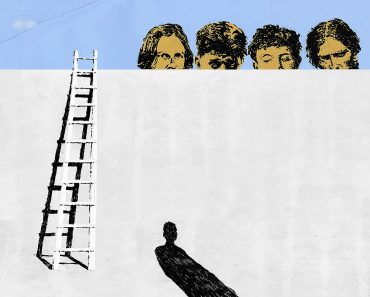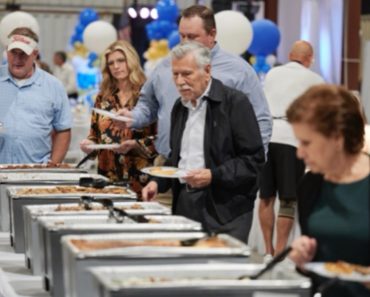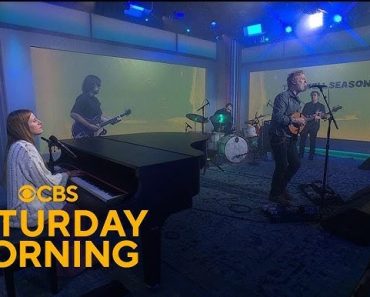For Michelle Zauner, hard work was just part of the job as leader of the indie band Japanese Breakfast.
And when all that started to pay off in 2021, with her breakout album “Jubilee” and the acclaimed memoir “Crying in H Mart,” life suddenly got a lot easier.
So why, she wondered, didn’t things feel better?
“I was a DIY kid since I was very young,” Zauner says on a recent video call. “And some people can continue to go at that clip.”
As her profile rose, the grind of touring lightened. Now, she didn’t have to go barreling down the highway from city to city, often crashing on the floors of friends or fans after the shows.
“So the idea of playing suddenly six shows in a row and getting my own hotel room, and not having to sleep in the same bed in a Holiday Inn with my drummer, it was like, ‘Well, why shouldn’t I be able to do that?’”
But while more success might have brought more physical comforts, Zauner says she struggled on the inside.
“Suddenly, I had developed really bad stage fright,” Zauner says.
Before, she drove the car from gig to gig, sold band merch after the show each night, and served as her own tour manager, too, she says.
“As we got bigger, all of those responsibilities whittled down to just the core of what talent I had to offer, and I think that really scared me,” Zauner says. I had no more excuses.
“I suddenly was very fixated on the mistakes I actually could make that were just my own, and not because I was tired from driving or carrying gear. Suddenly, I wasn’t even carrying my guitar anymore.”
Her anxiety on stage as the Jubilee Tour wound through 2022 and into a year of mostly festival dates in 2023 wasn’t just mental, either.
“It manifested itself in really strange physical ways,” Zauner says. “I saw an interview with [Olympic gymnast] Simone Biles where she talked about getting ‘the twisties,’ and this thing that’s so in your body, suddenly you forget how to drive. It just manifested in being sure I was gonna make a mistake in a guitar solo, where I was going to forget that progression in the middle of the song, like in a really physical way.
“It all kind of went to my stomach, so I had a lot of stomach pain and was just really stressed out and sad,” she says. “I think the only way to solve it was kind of to take some time.”
Which is exactly what she did, leaving the United States in December 2023 to move to South Korea, the birthplace of her late mother, to study the Korean language, spend time with her husband, Japanese Breakfast guitarist Peter Bradley, and step away from the stresses of the road for a full year.
Earlier this year, Japanese Breakfast released its fourth album, “For Melancholy Brunettes (& Sad Women),” and returned to the road for a tour that included performances at Coachella in April, a run of European dates in the summer, and now a night at the Greek Theatre in Los Angeles on Friday, Aug. 22.
In an interview edited for length and clarity, Zauner talked about her year in South Korea, how literature inspires her songwriting, and how she recorded a duet with actor-singer Jeff Bridges yet has never been in the same room with him.
Q: So, how has your time on the road this year been going?
A: It’s been great. You know, I took a year-long hiatus, and I think it sort of renewed an appreciation of playing live music. The band has now been an entity in this arrangement for a few years, so it’s been really fun to bring it life with all of those members together from the beginning. We wanted to do something special and theatrical and, yeah, I’m really proud of it.
Q: The Greek will be your largest-ever headlining show in Los Angeles. So you’ve been generally playing larger places this year?
A: Yes and no. We really wanted to prioritize really beautiful theaters for the most part. That was more important to me than trying to really blow it out. I think the Greek felt like a really special environment that would still serve an album like this in this production. I don’t know, I feel like people have a special relationship to that place, and I’m excited. I’ve never been there.
Q: You’ve never seen a show there either?
A: No. I’ve seen photos and I know that people have a reverent feeling about that place. But this will be the first time.
Q: I know you’d been thinking of going to South Korea to immerse yourself in the language and culture. When you left in December 2023, what was it like in those first months there?
A: It was so fun. I think it’s always felt like a second home to me. [Born in South Korea to a White father and South Korean mother, she was raised in Oregon where her parents moved when she was 9 months old.] It’s always felt like a second home to me, and it was nice to spend so much time there.
My manager’s like, “You’re going to be begging me for work after a couple of months.” I really enjoyed living a very simple life. I was just a student for a year.
Q: What was it like to slow down so much and have that simplicity around you?
A: I thought, honestly, I was going to be so bored and lonely and distracted, but I had such a good time. It was so fun for me to do something completely different and focus on something really just so mental, you know? It’s just you and your brain. It ended up being so fulfilling for me.
Q: South Korean pop culture has boomed in the United States in the last decade with TV shows, movies, and the whole K-pop phenomenon. What was your experience like there?
A: I will say by nature of being an indie musician, I was really exposed to Korea’s great indie music scene. I feel like that’s sometimes overshadowed by the massive popularity of K-pop. So it was really great for me to meet bands like Silica Gel and Balming Tiger. And Lang Lee and Minhwi Lee, who just did a tour with us in Europe.
There are so many great indie bands there doing really creative, singular stuff. I wasn’t really exposed to that before going to Korea. It was fun, not only getting to listen to that and learn about these bands, but befriend a lot of them and get to work with them.
Q: One thing that caught my eye when I was looking at where you’ve played this year was a set at the DMZ Peace Festival near the border with North Korea. Did you play much in South Korea? What’s it like?
A: It’s so special. I don’t know if I’ve played a concert in Korea and not sobbed massively during or after that performance, which is not super common for me, surprisingly. I think this is our fourth time playing in Korea, and this is a really special festival. It’s not in the city, it’s sort of out in the countryside, and it’s not on the DMZ, but it’s towards the north.
It’s in a village, a really quiet countryside town. It’s special to see Korean people, mostly, I think, from Seoul, who are so modern, in this hippy dippy like granola-like countryside environment, really be sort of boho and let loose.
Q: That sounds terrific.
A: Apparently, it rains every year, and it was just this massive – none of us had ever seen anything like it – just massive downpour when we played. My aunt came, who’s such a special person to me, it’s really kind of just us left in our family, and I feel like she’s sort of the only person that can understand the real tragedy of our family, losing people quite early.
I had learned this song that’s so beautiful by this artist named Kim Jung Mi that I’d been wanting to cover. It’s just called “The Sun.” And so I was singing this song I’d spent so much time to really nail and memorize all the Korean lyrics in this downpour. I’m singing this song about, like, let’s go to the land where it’s just song [she laughs] while everybody’s being soaked to the bone.
And they start the most, like, wholesome mosh pit I’ve ever seen, where they’re just running in a circle. They’re not pushing each other, just running in a circle. And my aunt, who I’m dying to get inside or to the side stage, is in front in a little poncho. Someone’s given her a sign that says, “Life is sad but here is Japanese Breakfast,” and it’s just her dead-front and center, looking at me. It was such a special, sweet moment.
Q: Let’s talk about the new record. Did you write it in Seoul or before you went there?
A: I finished the recording in the winter of 2023 in L.A., and we did the sort of mixing notes back and forth while I was abroad.
Q: So coming off “Jubilee,” was it a conscious decision to do more sort of acoustic pieces, more guitars?
A: I knew I really wanted to have a guitar album. I think part of the reason why “Jubilee” was quite uncomfortable for me was because it was so joyful and so extroverted and really required me to be this singer I had no intention of being. Even the lead single [“Be Sweet”] was just so difficult for me to sing and was just so poppy.
So I wanted to make something just more naturally introverted, and I wanted to be back behind a guitar again. Safely behind a guitar.
Q: I want to ask you about the role literature plays in inspiring you. I read the album title is from a John Cheever short story, and the song “Orlando In Love” is named after a 15th-century Italian epic poem, though some people online think it’s Virginia Woolf’s “Orlando.”
A: The title [“Orlando In Love”] comes from an Italian Renaissance poet named [Matteo Maria] Boiardo, which I also learned about in this John Cheever book, which was oddly formative. [The song] has very little to do with the poem, which is very long, and I admittedly haven’t read much of it.
I mean, to say I wasn’t inspired by Virginia Woolf at all maybe is a lie, but I was really inspired by this foolish, whimsical character I created that kind of became the sort of avatar of this record for me.
Q: It’s a subtle thing, a line will catch your attention, and then your imagination takes over.
A: Yeah, that’s sort of been the way I’ve written for a very long time. I think especially with music, it’s easy to be impressionable, so I try not to listen to things I want to emulate too much. So I think a lot of the inspiration for songs comes from reading. [The song “Leda” includes several references to Greek mythology, while “Magic Mountain” has connections to the Thomas Mann novel of the same name.]
Q: Blake Mills, who’s worked with everyone from Bob Dylan and Lucy Dacus to Fiona Apple and Joni Mitchell, produced the new record, and you recorded it at Sound City, both of which are kind of new things for you, I think.
A: I felt like it was kind of the ace up my sleeve that I’d never done something like this before. I knew going in that this was going to have a level of fidelity that I had never put out before, and I really just wanted to work with someone that was gonna kind of direct a little. I wanted to really bring in a new voice.
And I’d never worked with someone that wasn’t kind of a friend of mine and who’d made many records before, so yeah, that was a new experience. Even being in L.A. was such a strange place for me to make a record.
Q: I have to ask you about “Men in Bars,” your duet with Jeff Bridges, which is terrific and unexpected. How’d that come to be?
A: I wrote that song a long time ago, and I always knew I wanted it to be a duet between a man and a woman. It’s almost like you’re getting two different perspectives of the same events.
I really wanted this masculine, working man’s voice, and Blake and I couldn’t agree on a good person for the entirety of the recording sessions up until the last week, when out of nowhere, he remembered he had worked on [Bridges’] record. Then he texted him, and within a couple of hours, he video-chatted us and was just really down. He’s a music lover and a cool guy, and that’s how that happened.
Q: I know he did his part remotely. Have you met him yet?
A: No. I feel so awful because I actually had stationery made to send him a handwritten letter to thank him and send with the record. And it was one of those things that you make too precious of a thing and then it falls by the wayside. But I’ve actually written out this letter now, and I think I’m going to send it this week. So I don’t know, maybe someday I’ll meet him.
Q: He lives in L.A. – he could come to the Greek.
A: I know, I know.
Japanese Breakfast
When: 7:30 p.m. Friday, Aug. 22
Where: The Greek Theatre, 2700 N. Vermont Ave., Los Angeles
How much: $56-$159
For more: See japanesebreakfast.rocks




















